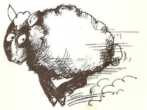Bridgwater is a small, industrial, market town in Somerset. So is there anything particularly special about that? About IT? As opposed to anywhere else? Well, yes. ‘Industry’ is key. Although it’s the second largest town in the county – a position it fights over with Yeovil but both are looked down on from a considerable height by ‘actual’ county town Taunton, it’s a solidly working class town and therefore a rebel town. Joe Strummer famously also called it ‘a Clash Town’ and chose to move here. It’s the only municipal ‘red flag’ waving between Bristol and Exeter and that also sets it apart with its proud and radical history.

The first town to petition against the Slave Trade. 1785.
The last battle in England during the bloody Monmouth rebellion. 1685
The only town in Britain to vote against the Munich Agreement. 1938
The only town in Somerset where the Government had to clear strikers from the streets at bayonet point. 1896
The home of the world famous Bridgwater Carnival, the largest free street event in the country. 1605
To read the full radical history of Bridgwater click here.
But what we are looking at is a specific period of cultural and creative anarchy from 1977 to 1991 where an organisation called Sheep Worrying exploded on to the town in the wake of the radical punk movement of the 1970’s and went fist to fist with the Establishment during the Thatcherite years of the 1980’s reaching a crescendo with the Poll Tax rebellion in 1990-91.
Why is Bridgwater important?

In the 1970’s the town had reached a turning point. It’s historic Borough Council, always radical and progressive, from Whig to Liberal to Labour, had been abolished in the 1974 local government re-organisation and submerged into a new creation, Sedgemoor District Council.
This meant the end of Bridgwater’s century old proud history of municipal radicalism and its replacement by rule by out of town Tories. Bridgwater had lost control of its own destiny, and by the 1980’s the Tories were rampant across the country.
The fact that Bridgwater people fought back in the way they did is another thing to be proud of. This website tells that story through the words of the many people involved.
For a year by year diary go here.

